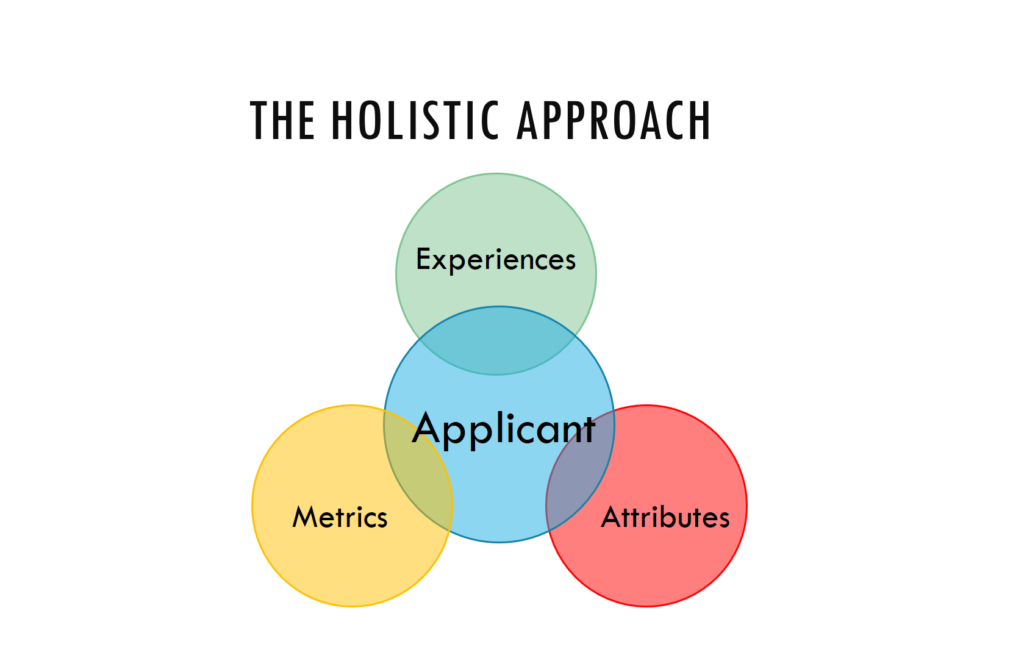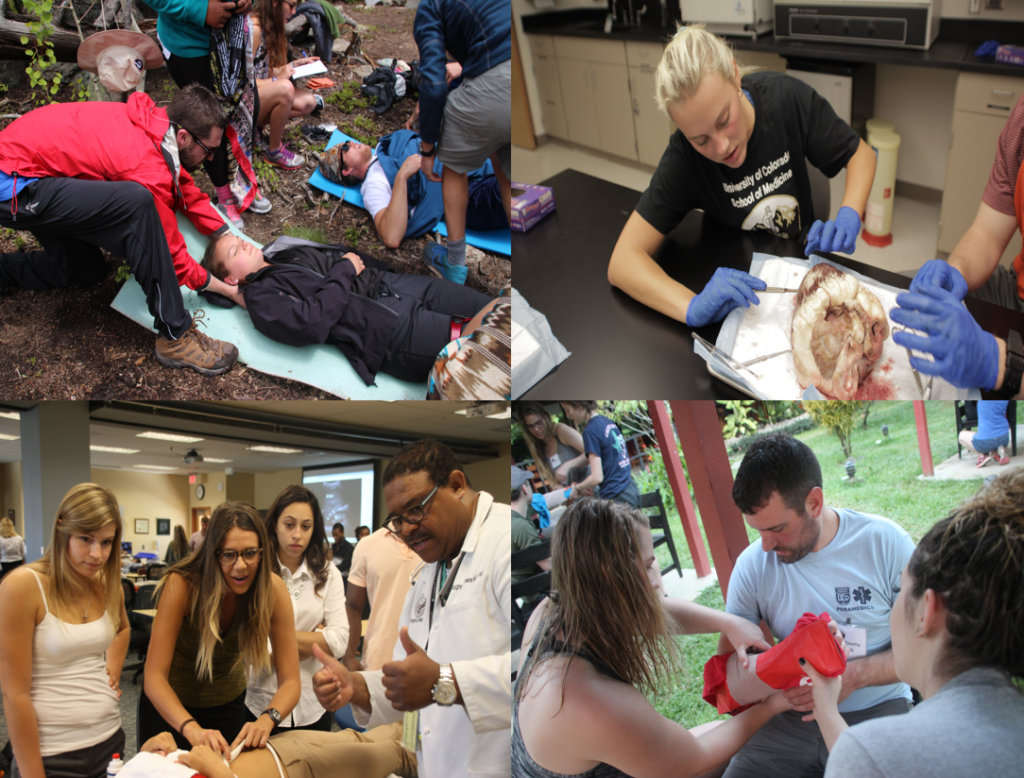[vc_row][vc_column][vc_column_text]By: Alessandra Santiago
At the CU Denver Admissions Board, one of the most frequently-asked questions we hear from pre-meds is:
“What extracurricular experiences make applicants stand out?”

Our answer to this question is rarely as prescriptive as: “Do three years of wet lab research, volunteer for five years on the Pediatrics Ward, and make sure to have shadowed five physicians at as many hospitals.” Though these activities can provide formative perspectives into the healthcare field, we’re not merely looking for the boxes you’ve ticked before we can admit you.
It is more personal than that.
The Value of Service-Oriented Leaders
What is it, then, that makes applicants stand out?
For us at CU Denver, we look deeply into an applicant’s reflections on the experiences they have had for the attributes that make each applicant uniquely suited for a career in medicine.
What sets an applicant apart is the depth of personal impact and clarity of purpose they are able convey in their primary essays. For us, these are some of the most powerful, tried-and-true indicators of an applicant’s aptitude for healthcare.
This approach to seeking highly-personal experiences in healthcare often yields a uniquely service-oriented and mature kind of applicant.
“It’s pretty clear when an applicant is really, really passionate about medicine or research because they come at it from a place of service,” says CU Denver Senior Admissions Professional, Karina Goodwin.
“That’s really evident in the essays that we read. An applicant’s experiences and attributes are coming from a place of service, rather than ‘I had to do research because I had to do research’.”
So, before we dispense prescriptive advice as to the type of experiences we like to see, we advise applicants to do two things:
- Pursue experiences that call to you, and when you do, let those experiences profoundly impact you.
- Be able to clearly explain how the experiences affected your understanding as to what type of healthcare provider you want to be. That’s what can truly shine in your essays.

Crafting Tailored Experiences in Healthcare
Let’s now look beyond the primary essays into the practical experiences that we see most often among applicants.
Students who can clearly elucidate their personal motivations to experience medicine firsthand through extracurricular, research, and scholarly activities can read as strong candidates.
Becoming one of these strong applicants means having formative clinical and/or field experiences. This can mean many different things, including shadowing physicians, volunteering in a clinic or hospital, taking field courses, or doing clinical or bench research. Some students may even feel called to teach healthcare or First Responder skills to their peers or special interest groups. The list is quite long; this is where creative thinking can be applied!
Among all of the materials of the primary applications, this is the category where being a highly-specialized applicant can make your application shine.
| “Experiences, research, and achievements aren’t simply boxes to tick: this is how you show what is meaningful to you and what engages you in the healthcare field.” |
For instance, a candidate who demonstrates extensive research experience—clinical or bench—over time spent volunteering in an Oncology Ward may have a much stronger application for research-focused medical institutions if they can effectively convey why they conducted their research, what they found, and what they carry from it into their healthcare career.
One Long-Term or Many Short-Term Experiences?
For Admissions Boards, students who demonstrate sustained volunteering or community service experiences tend to rank higher than students with many short-term stints. Beyond the commitment through long-term volunteer experiences, Admissions Officers like to see clearly elucidated reasons as to why those experiences were meaningful, reasons that often take many months to mature.
The Practical Benefits of Field Courses
And beyond the lab or the hospital, there are other applied learning experiences that can strengthen an application. Many med schools offer Field Courses encompassing a wide array of medical fields, and students who participate often have first-hand experiences of medicine or patient care that make them stand out.
For instance, our Wilderness Medicine Department offers pre-med Field Courses in Wilderness and Marine Medicine, Emergency Medicine, and Wilderness First Aid. Many of our alums have gone on to further refine their interests in medicine and cultivate relationships with faculty through our field courses, setting themselves up for success in the application cycle at our med school.

Above all else, the best way to demonstrate that you are a self-motivated learner is to pursue what interests you! This is not a one-size-fits-all category, but rather a highly personal endeavor that can help you shine uniquely in a wide pool of applicants
The Take Away
Personalize, personalize, personalize! Being a self-motivated learner means finding what motivates you in medicine—whether that is research, volunteer, or clinical experience—and demonstrating a sustained pursuit of those academic and extracurricular interests. This is not a one-size-fits-all category!
Want More Medical School Application Hacks? Sign Up Below to Receive Our Pre-health Newsletter!
Contact Form
